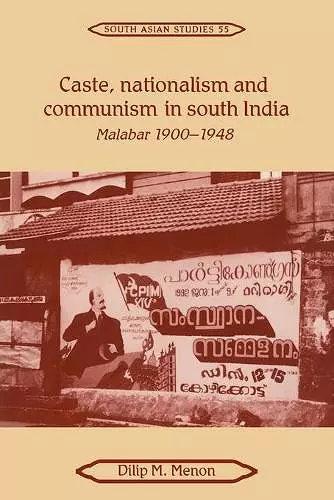Caste, Nationalism and Communism in South India
Malabar 1900–1948
Format:Paperback
Publisher:Cambridge University Press
Published:3rd Dec '07
Currently unavailable, and unfortunately no date known when it will be back

This book explores the rise of communism in Kerala, focusing on its transformation into a doctrine of caste equality and local political practices.
In Caste, Nationalism and Communism in South India, Dilip Menon delves into the historical landscape of communism in Kerala, particularly focusing on the year 1957, when it became the first region in Asia to establish a communist government through parliamentary means. Menon meticulously traces the evolution of communist ideology in Malabar, examining how it transformed into a doctrine that emphasized caste equality. This transformation was not merely ideological; it was deeply influenced by local circumstances and pragmatism, reshaping national strategies to fit the unique socio-political fabric of the region.
The book stands out by shifting the focus from the typical analysis of party policies to the diverse political practices that emerged within the Malabar region. Menon emphasizes the intricate relationship between landowners and cultivators, highlighting their economic and cultural interdependence. He argues that while inequality and differences existed, they were often mitigated by a mutual understanding of shared symbols and values, which played a crucial role in the success of communism in Kerala.
Through a thorough examination of these dynamics, Caste, Nationalism and Communism in South India offers readers a nuanced perspective on the interplay between caste, nationalism, and the communist movement. Menon's insights provide a valuable contribution to the understanding of how local contexts can shape broader ideological movements, making this work essential for anyone interested in the complexities of Indian political history.
ISBN: 9780521051958
Dimensions: 228mm x 152mm x 18mm
Weight: 361g
232 pages